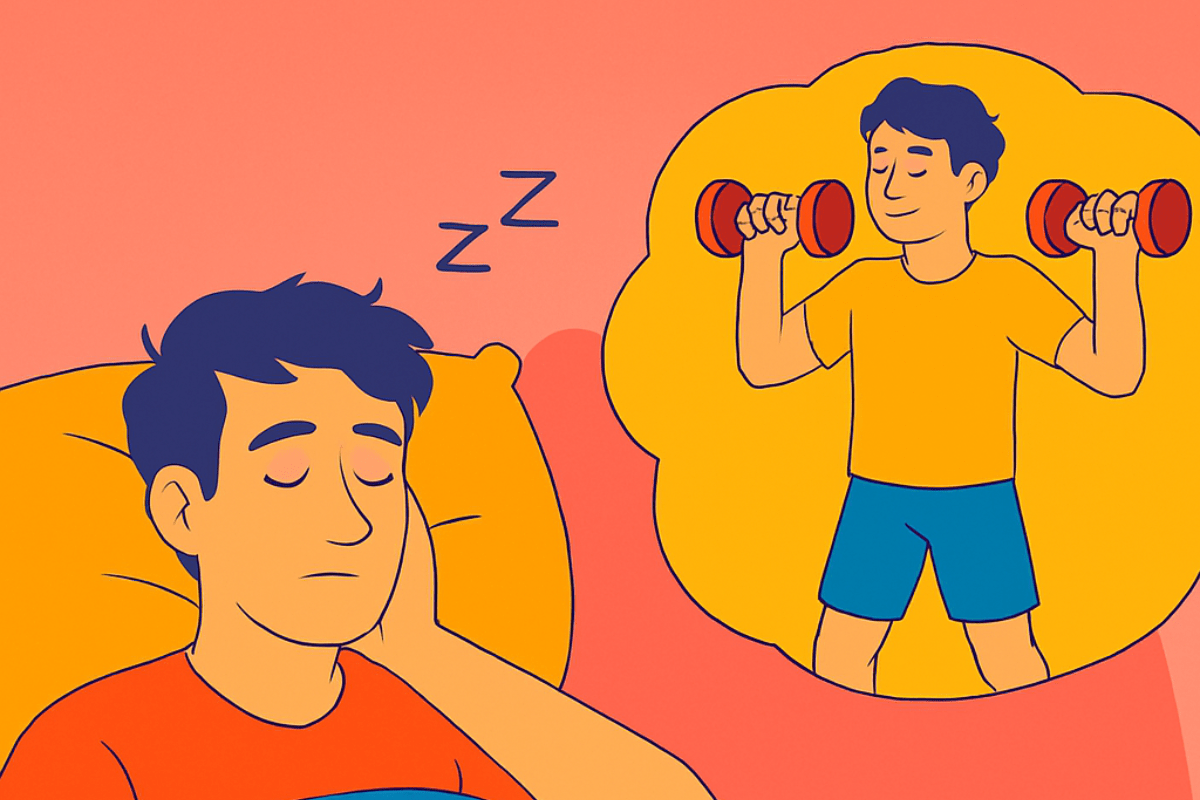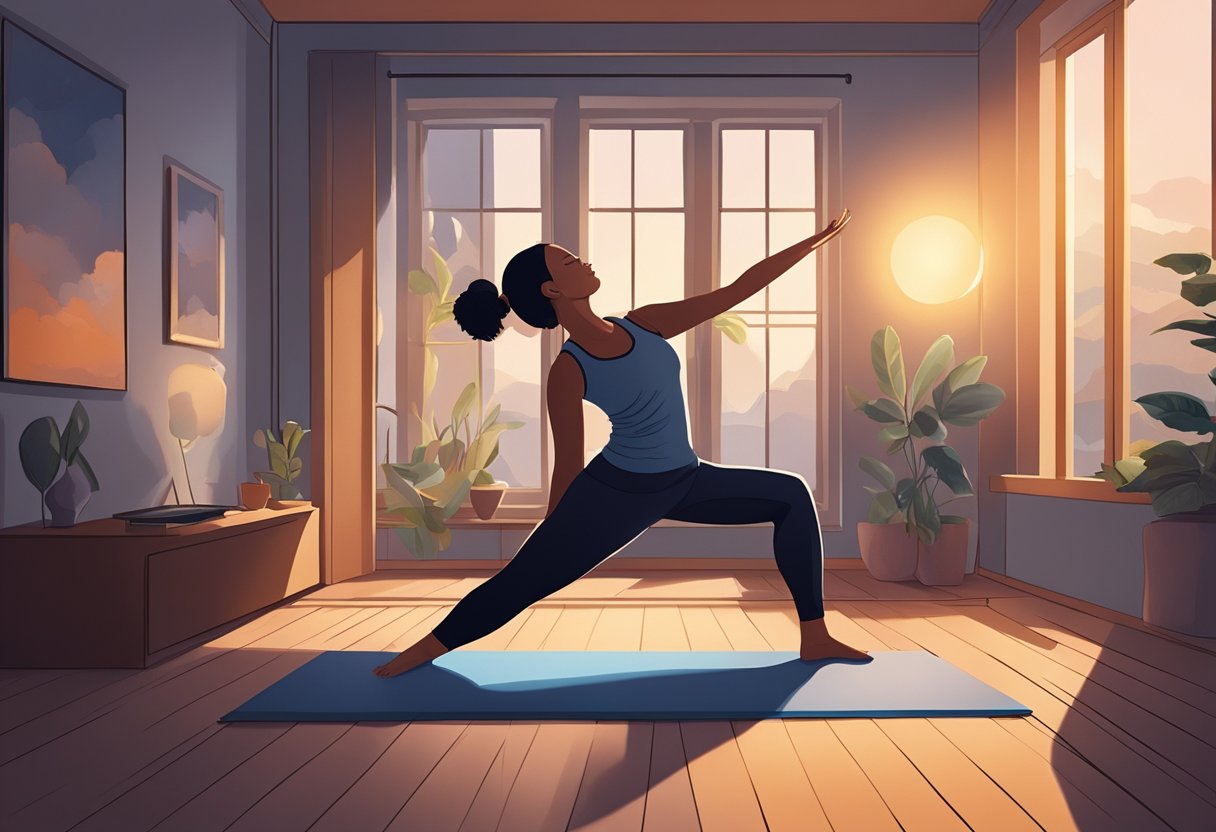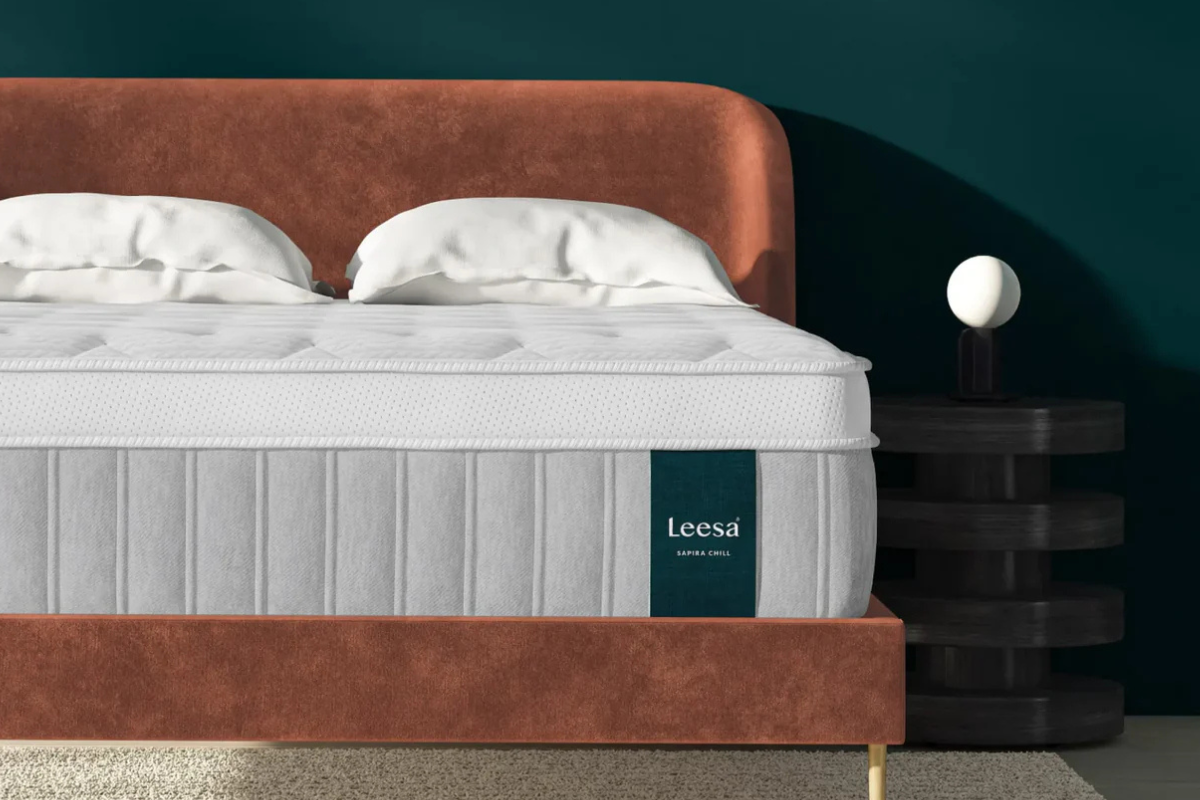Regular physical activity plays a key role in improving sleep quality. Exercising not only helps you fall asleep faster but also makes your sleep more restful throughout the night. Many people struggle with sleep issues, and adding the right kind of exercise to your routine can be a simple yet effective fix. Different types of exercise affect sleep differently — some help you relax, while others give you an energy boost. Timing matters too; working out too close to bedtime might make it harder to fall asleep for some people. Understanding these factors can make a big difference for anyone trying to sleep better through exercise.
Exercise and sleep are closely connected, and finding the right balance can have a big impact on your overall health. Exploring this relationship can help you build a routine that works for your body’s needs.
Key Takeaways
- Regular exercise can improve sleep quality and help with sleep problems.
- The timing and type of exercise can have a big impact on your sleep patterns.
- A good night’s sleep is important for performing your best during workouts.
- Pairing regular exercise with a comfortable, supportive mattress can enhance sleep quality and recovery.


Exercise plays an important role in shaping the quality and patterns of sleep. Understanding how sleep cycles work and how physical activity impacts them makes it easier to see the connection.
Understanding Sleep Cycles
Sleep happens in several stages, including light sleep, deep sleep, and REM (Rapid Eye Movement) sleep. Each stage plays a different role in helping the body and brain recover. Light sleep helps the body transition into deeper sleep. Deep sleep is essential for physical recovery and hormone balance, while REM sleep boosts memory and learning.
Regular exercise can positively influence these sleep cycles. It can increase the amount of deep sleep you get, which is key for proper recovery. Studies show that people who exercise tend to fall asleep more quickly and enjoy better sleep quality, with fewer disruptions during the night.
Physiological Effects of Exercise on Sleep
Exercise impacts sleep through a variety of physical responses. When you work out, your heart rate increases, your circulation improves, and your body releases endorphins — all of which help you feel more relaxed and balanced. These changes can reduce stress and anxiety, which are common barriers to falling asleep. Research shows that regular exercise can also reduce sleep latency — the time it takes to drift off.
Exercise also helps regulate your body’s internal clock, making it easier to maintain consistent sleep patterns. Aerobic exercises, in particular, have been shown to improve overall sleep quality.
The timing of exercise plays a key role in how it impacts sleep. Both morning and evening workouts offer specific benefits, especially when it comes to sleep quality and the body’s recovery process. Understanding these effects can help you decide the best time for your workouts.
Morning vs. Evening Workouts
Morning workouts can give you a strong start to the day. Exercising in the morning often leads to improved alertness and a better mood throughout the day. Many people who work out in the morning also report feeling more focused and productive.
Evening workouts have their own advantages. Research shows that exercising in the evening can improve sleep quality. It may help you fall asleep faster and increase the amount of deep sleep you get. This makes evening workouts a good option for people who struggle to relax after a busy day.
Sleep Quality Post-Exercise
Regular exercise has a positive impact on sleep quality. People who work out consistently tend to fall asleep faster and sleep more soundly. Exercise has also been shown to reduce symptoms of insomnia.
It’s worth considering how the timing of your workout affects your sleep. Some people worry that sleeping after exercise might lead to weight gain, but research suggests otherwise. In fact, good sleep is essential for proper recovery and can even enhance the benefits of exercise. Ultimately, choosing workout times that align with your personal routine can improve both your fitness and your sleep quality.
Engaging in different types of exercise can have a big impact on sleep quality. Activities focused on aerobic fitness, strength training, and mind-body connection each play a unique role in helping you get better rest.
Aerobic Activities
Aerobic exercises are great for improving sleep. Activities like walking, jogging, and cycling get your heart rate up and boost overall health.
Studies show that people who engage in at least 30 minutes of moderate aerobic exercise often experience better sleep quality. For the best results, try to schedule aerobic workouts in the morning or early afternoon.
Examples of aerobic activities include:
- Brisk walking
- Running
- Swimming
- Dancing
These exercises can also help reduce anxiety and depression — two common reasons for poor sleep.
Strength Training
Strength training focuses on building muscle and can also improve sleep quality. This includes exercises like lifting weights or using your body weight for movements like push-ups and squats.
Research shows that strength training helps regulate your body’s sleep-wake cycles. For the best results, aim to include strength workouts 2–3 times a week.
Some effective strength training exercises include:
- Free weights
- Resistance bands
- Bodyweight exercises
These workouts not only increase energy levels but also promote relaxation, making it easier to fall asleep.
Mind-Body Exercise
Mind-body exercises combine physical movement with mental relaxation. Practices like yoga and tai chi focus on breathing, balance, and mindfulness, which help calm the mind and body. These exercises are especially helpful for people who have trouble falling asleep or staying asleep. Deep breathing and gentle stretching help release tension and create a sense of calm.
Key benefits of mind-body exercises include:
- Better sleep quality
- Reduced stress
- Improved mental clarity
Adding these exercises to your regular routine can create a greater sense of relaxation, making it easier to drift off and stay asleep.

Exercise can play a big role in managing sleep disorders like insomnia and sleep apnea. Research shows that regular physical activity can improve sleep quality and help reduce symptoms of these conditions.
Exercise as a Tool for Insomnia
Insomnia makes it difficult for many people to fall or stay asleep. Regular exercise can help tackle this problem. Studies show that moderate exercise can reduce the time it takes to fall asleep and improve overall sleep quality.
Activities like walking, swimming, and cycling are particularly effective. Experts recommend aiming for at least 150 minutes of exercise per week. However, timing matters — working out too close to bedtime could make it harder to fall asleep.
Benefits of Exercise for Insomnia:
- Reduces the time it takes to fall asleep
- Improves overall sleep quality
- Lowers anxiety and stress
Adding exercise to your daily routine can be a simple and effective way to improve your sleep patterns.
Exercise and Sleep Apnea
Sleep apnea is a serious condition that causes breathing interruptions during sleep. While treatment usually involves lifestyle changes and medical care, exercise can be a helpful part of managing symptoms.
Strengthening the muscles involved in breathing can make a big difference. Aerobic exercises like jogging or cycling also help maintain a healthy weight, which is important since extra weight can make sleep apnea worse.
Key Points:
- Aerobic exercise supports healthy weight management
- Strength training improves breathing muscle strength
- Regular exercise can reduce daytime sleepiness
Sticking to a consistent workout routine can significantly improve sleep quality for those dealing with sleep apnea.
Engaging in regular exercise plays an important role in maintaining good sleep hygiene. Adding physical activity to your daily routine can set the stage for better sleep. Key factors to consider include maintaining a consistent routine and being mindful of how exercising close to bedtime affects sleep.
Routine and Consistency
Sticking to a regular exercise routine can greatly improve sleep quality. Consistent physical activity helps you fall asleep faster and enhances overall sleep quality. Setting aside a specific time each day for exercise helps make it a lasting habit. Experts recommend aiming for at least 30 minutes of moderate exercise most days of the week.
Activities like walking, cycling, and swimming are particularly effective. Keeping a consistent workout schedule helps regulate your body’s internal clock, leading to more predictable sleep patterns.
Having a regular exercise schedule also makes it easier to prioritize working out. Over time, this commitment helps create a positive mindset toward exercise, making it feel like a natural part of daily life.
Pre-Sleep Exercise Considerations
While exercise is beneficial, timing matters. For some people, working out too close to bedtime can make it harder to fall asleep. High-intensity workouts in the evening can increase heart rate and adrenaline levels, which may delay sleep. Lighter exercises like yoga or stretching are better choices before bed. These activities promote relaxation and help the body wind down for sleep. It’s generally best to finish intense workouts at least two to three hours before going to sleep to give your body enough time to calm down.
Overall, planning your workouts thoughtfully can help you align physical activity with better sleep habits. By being mindful of how and when you exercise, you can maximize the benefits of both sleep and fitness.

Sleep plays a vital role in both recovery and performance during exercise. Getting enough rest supports muscle growth, mental focus, and overall physical performance. The sections below explain how sleep impacts these key areas of fitness.
Recovery and Muscle Growth
Recovery is crucial for athletes and anyone who works out regularly. Sleep is when the body repairs muscles after exercise. During deep sleep, the body releases hormones like growth hormone, which helps with muscle repair and growth. Research shows that people who get enough sleep experience greater strength and muscle gains compared to those who are sleep-deprived. Athletes who sleep for ten or more hours often recover faster and are less prone to injuries.
Good sleep also boosts energy levels, which is essential for high-intensity workouts. When you don’t get enough sleep, your muscle glycogen levels drop, leading to quicker fatigue during exercise.
Mental and Physical Performance
Sleep has a direct impact on mental clarity and focus. It sharpens decision-making and reaction times, which are critical for athletic performance. Lack of sleep can slow down response times and increase the chances of making mistakes during workouts or competitions. Studies show that sleep deprivation can reduce exercise accuracy by up to 10%. This is especially important for athletes who need high precision, like gymnasts or basketball players.
Sleep also affects endurance. When you don’t get enough rest, you’re more likely to feel drained and struggle to complete workouts. Your perceived effort increases, making exercises feel harder than they actually are.
Maintaining good sleep habits can lead to better overall performance, improving both mental sharpness and physical stamina. For athletes aiming to reach their full potential, getting quality sleep is just as important as training.
The quality of your mattress plays a major role in how well you sleep and by extension, how well you recover from exercise. A supportive and comfortable mattress helps your muscles relax, reduces pressure points, and promotes deep, restorative sleep — all essential for muscle repair and peak performance.
The Leesa Sapira Chill Hybrid mattress is a great option for athletes and active individuals. It combines foam and spring technology to provide balanced support and cooling comfort. The mattress features a breathable cover and cooling gel layer that help regulate temperature, ensuring you stay comfortable throughout the night even after intense workouts.
Key benefits of the Leesa Sapira Chill Hybrid for exercise and sleep:
- Provides targeted support to relieve muscle tension and promote proper spinal alignment.
- Hybrid design helps reduce motion transfer, so sleep isn’t disturbed even if you move around.
- Cooling technology helps prevent overheating, which is especially helpful for athletes with higher body temperatures post-exercise.
Investing in a high-quality mattress like the Leesa Sapira Chill Hybrid can improve both sleep quality and athletic recovery. Better sleep means better performance and a mattress designed for comfort and support can give you the edge you need.








